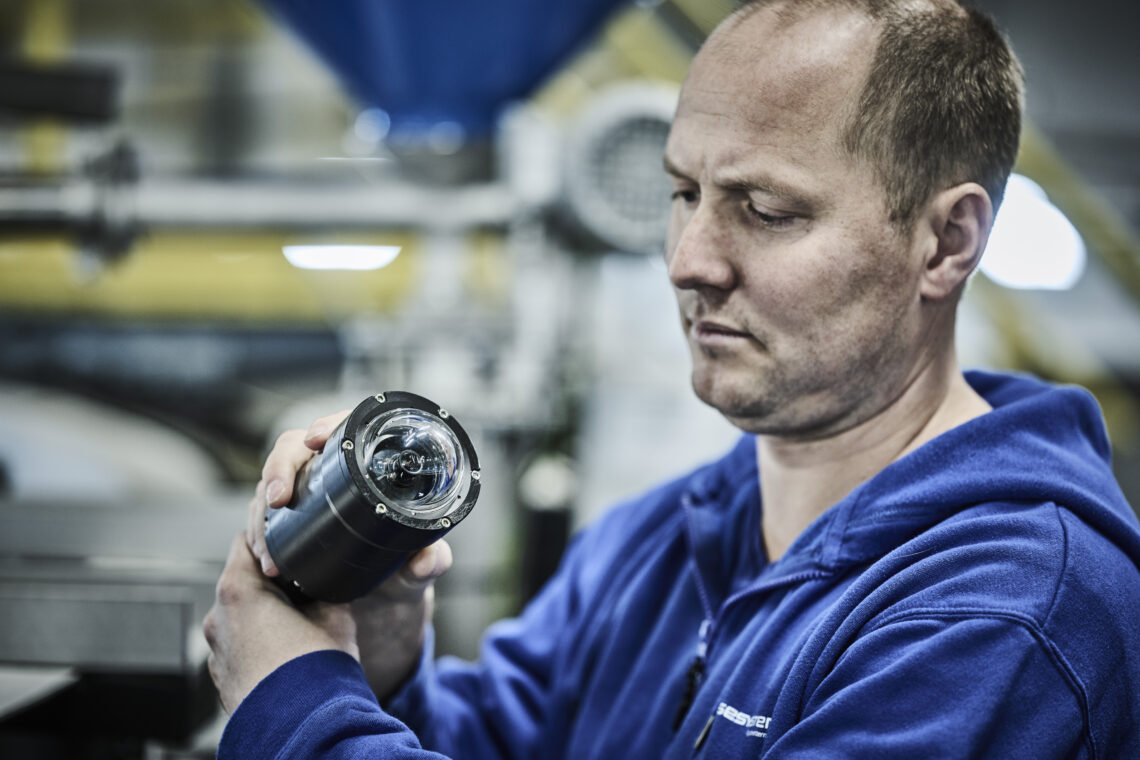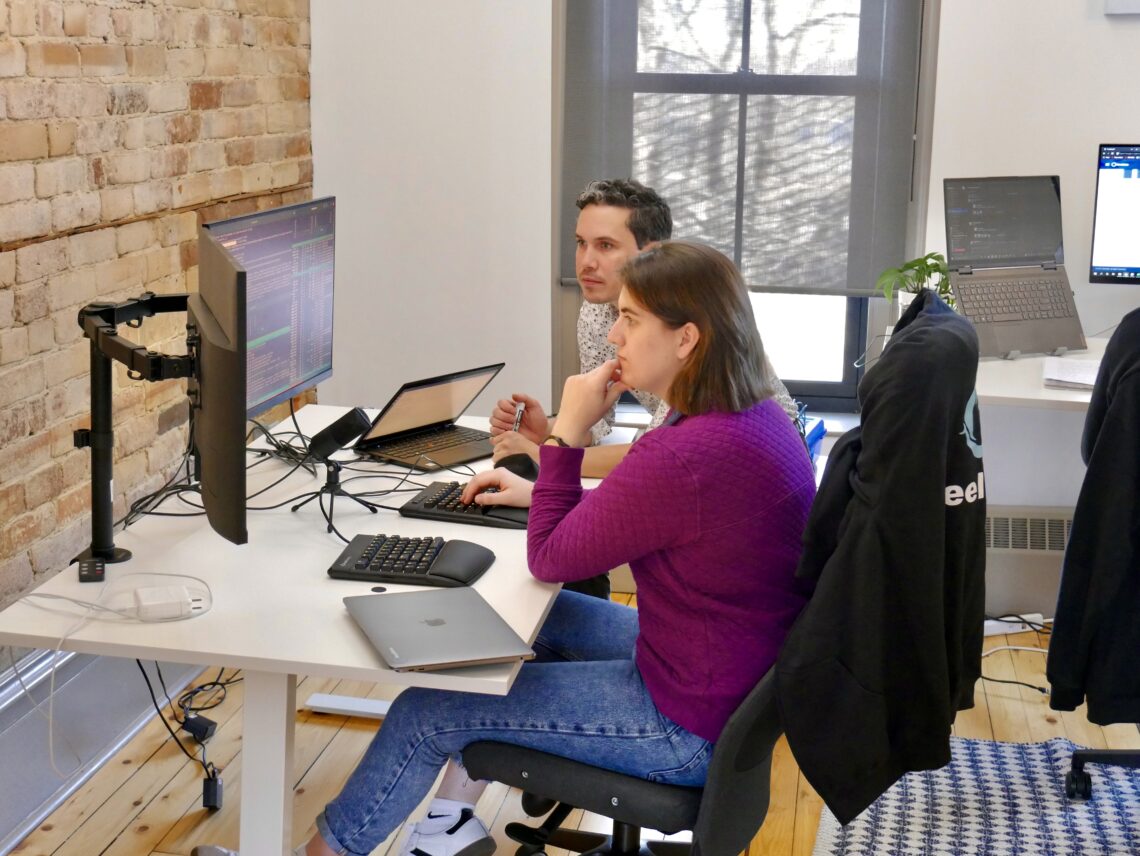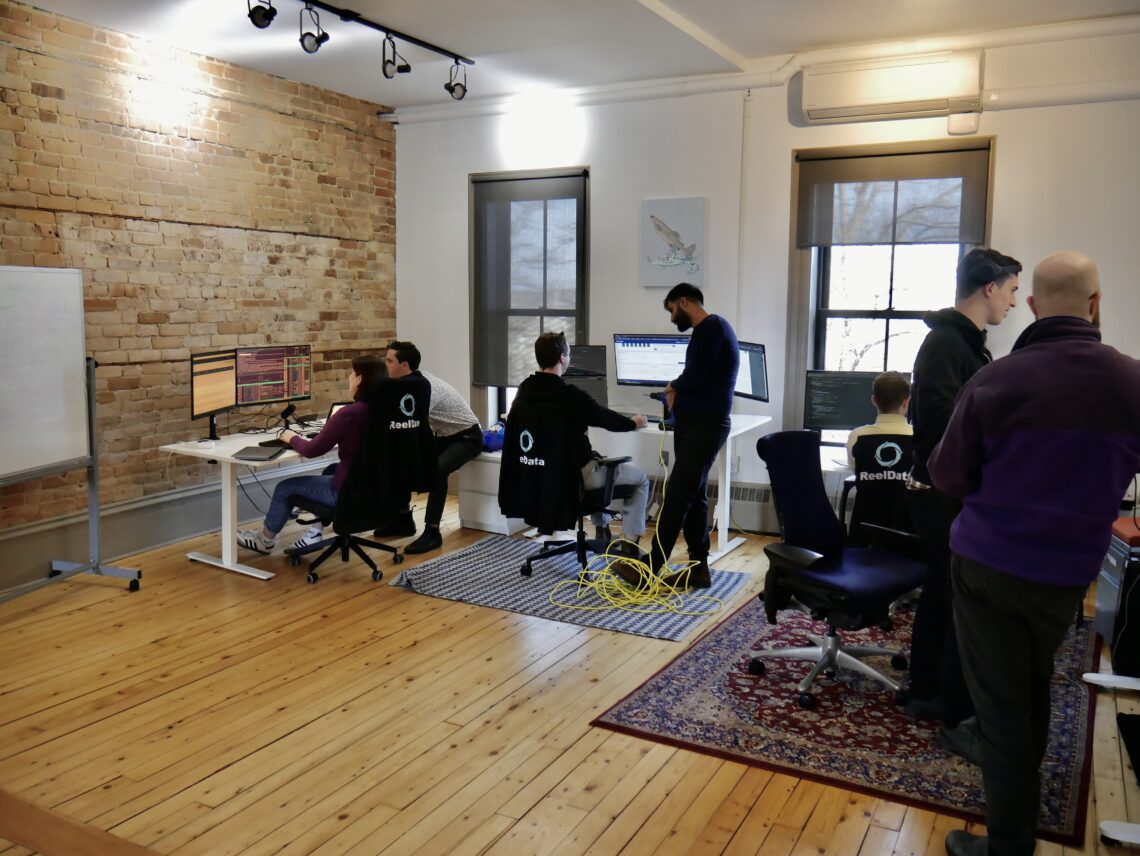Norwegian technology provider Laksesystemer and the Canadian AI supplier ReelData have signed an agreement to work together to supply feeding systems for land-based farming with autonomous appetite adjustment system based on pellet detection.
The companies were introduced to each other through a joint project in the Netherlands, explained Ole Gabriel Kverneland, general manager of Laksesystemer.
Synergies
“We immediately realized our companies had perfectly aligned ambitions and that there was a huge potential to create synergistic effects for our customers. The farms are quickly getting bigger and the tanks deeper; this makes feeding accurately more challenging than ever before. Add the fact that feed waste in a recirculated fish farm quickly deteriorates water quality and one will quickly see the vast potential of the technology we are now able to offer to the land-based segment. Using artificial intelligence to help fish farmers make decisions or feed autonomously has always been a part of Laksesystemer’s strategy and we are thrilled to finally be able to announce our Joint Venture with Reeldata making autonomous feeding commercially available.”

“Using artificial intelligence to help fish farmers make decisions or feed autonomously has always been a part of Laksesystemers strategy and we are thrilled to finally be able to announce our Joint Venture with Reeldata making autonomous feeding commercially available,” he said in a press release.
“The first farms using this technology are already seeing results that are truly interesting,” Kverneland continued.
Use the fish as a sensor
“As an aquaculture biologist, I have always said that the fish is the most sensitive sensor we can find. By listening to the fish, we are now generating data that can create a deeper understanding of the feeding behaviour of fish in land-based aquaculture.”

“The most important common ground is the fact that both companies are 100 per cent dedicated to the land-based aquaculture industry”, said Mathew Zimola, CEO of ReelData.
“The stability and repeatability of conditions in land-based is a totally different environment than the highly variable conditions in open pen aquaculture. The conditions in land-based aquaculture creates valuable baselines both for tuning appetite adjustment but also for using our system as a tool for detecting abnormal behaviour and in effect tracing episodes of stress,” he added.



